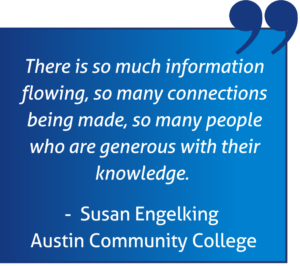Educational content at the conference will be organized into the following session types:
Field Reports (45 minutes): Field reports showcase innovative, high-impact approaches led by higher education sustainability professionals. These sessions highlight lessons learned, challenges overcome, and practical strategies that can be adapted on other campuses.
Learning Labs (2 hours): Take a deep dive into sustainability skills and strategies in these hands-on, interactive sessions designed to strengthen sustainability-related competencies. With more time for engagement and discussions, these sessions encourage active participation and practical application, helping attendees leave with actionable insights.
Student Field Reports (45 minutes): Part of the dedicated student track, these sessions provide a platform for students to share their sustainability projects, research, and campus initiatives with their peers and highlight student-driven impact. At least one presenter must be a current student or recent graduate.
Student Learning Labs (105 minutes): Part of the dedicated student track, these interactive workshops are designed to equip and empower students with the skills and connections needed to drive change on their campuses and in their communities. Priority will be given to proposals that connect students to a network or organization that will be able to continue to support them after the conference.
Networking Meetings (45 minutes): Connect, collaborate, and exchange ideas! These sessions bring together regional networks and other affinity groups (e.g., zero waste managers or community college representatives) to network, and discuss issues relevant to the group. With no formal presentation, the emphasis is on interactive dialogue and peer-to-peer sharing.
Pre-Conference Workshops (3 hours): These extended learning sessions, held on Wednesday, Oct. 22 (before the opening program), provide in-depth professional development opportunities. Offered at an additional fee, these workshops are designed for deep engagement and skill-building. Presenters should have experience leading and facilitating professional development sessions and will be required to sign a memorandum of understanding outlining responsibilities and benefits.

